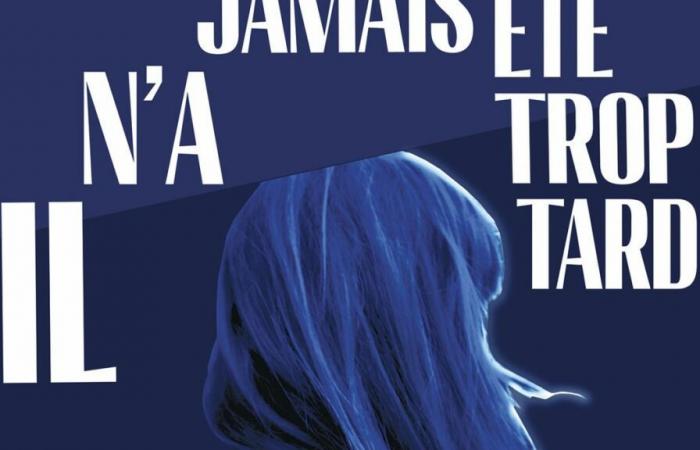In his latest work, It was never too latepublished on January 8 by Stock editions, Lola Lafon stands out as an essential voice of our time. Between chronicles, fragments of life and collective reflections, this book has already won over critics. France Televisions qualifies him as “stripping”while Telerama speaks of a “captivating book”. But what does this work contribute to current affairs, and how does it stand out in the French literary landscape?
A politicized journey
Lola Lafon, singer and novelist of Franco-Russian-Polish origin, grew up between Sofia, Bucharest and Paris. Her career, marked by militant commitment within feminist and anti-fascist collectives, nourishes a polymorphous literary work. His novels, including The little communist who never smiled (2014) or When you listen to this song (2022), earned him unanimous recognition, combining documentary rigor and narrative power.
Regular columnist for Liberationshe explores in her texts the interaction between intimate and collective, always animated by a keen eye on the contradictions of our society.
With It was never too latethe author questions our way of living in a world saturated with information. Through texts written between 2022 and 2024, she explores significant events such as the war in Ukraine or October 7, while allowing more personal reflections to surface.
She explains to Liberation : “Writing allowed me to escape from affirmation which is for me a total flaw, even politically. » This collection, which oscillates between diary and collective notebook, questions the idea of “fair distance” facing the tumults of the world, a concept inherited from advice from his father: “Make sure to keep the right distance from what you will go through, to remember the horizon, like a lesson in progress. »
A mirror of our contradictions
The book is praised by several critics for its ability to grasp the issues of our time while questioning collective illusions. The culture department of France Televisions highlights the way in which Lola Lafon “Cracks the veneer of our contemporary mythologies”particularly through reflections on resistance to the #MeToo movement or the stereotypes surrounding precariousness. The author points out, according to the media, “the limit of our passion for kindness”describing how “the misery that convinces us is that which does not bother us too much”.
A stock
Buy on Fnac.com
For their part, The Unrockuptibles highlight Lola Lafon’s unique literary approach. The media emphasizes that she “invents an unclassifiable genre” to reflect on the upheavals of the time, by adopting a plurality of voices – “I”, “we”, “she” – and by exploring subjects ranging from the war in Ukraine to the feminist struggle. The Unrockuptibles describe a book “with luminous melancholy” where writing becomes a tool to escape submission to time and reflect on what passes through us.
Finally, Telerama speaks of a “combative pessimism”where concern becomes a sign of humanity in the face of a world saturated with information and crises. To better understand his vision, we invite you to watch the show again The Great Bookstore by Augustin Trapenard on January 9, where Lola Lafon looks back on her work and her view of this world. As she explains in Liberation : “We must always leave a little opening, which is not blissful optimism, but which allows us to think about what we can do with it. »





